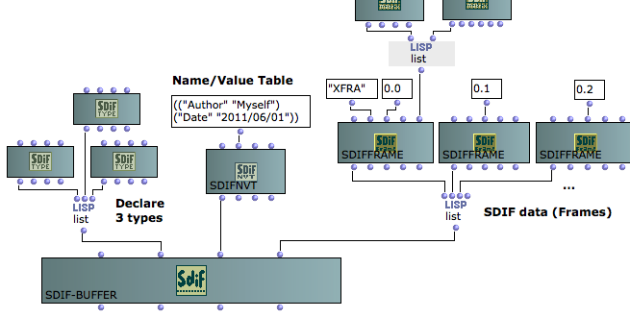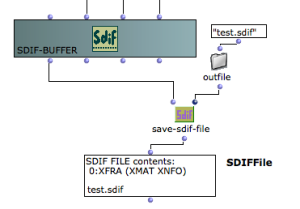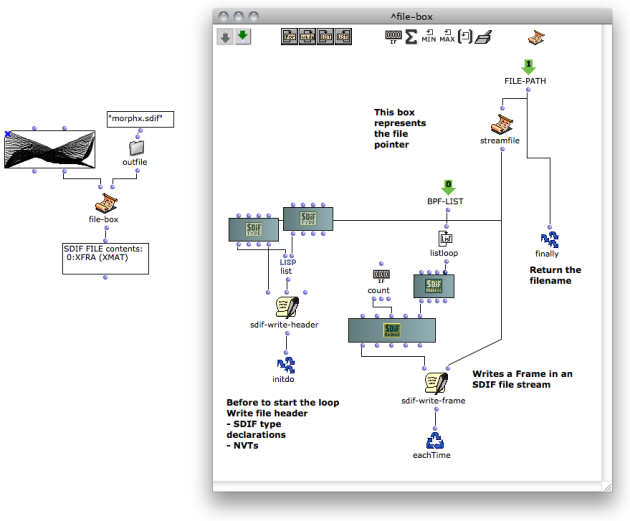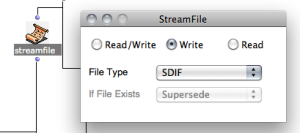SDIF-Buffer
The class SDIF-BUFFER allows to gather SDIF objects and makes the connection with “real” SDIF files.
An SDIF-Buffer contains :
- A list of SDIF Frames or SDIF Streams
- A list of SDIFTypes (type declarations)
- A list of Name/Value tables

More about the SDIF classes (SDIFFrame, SDIFType, SDIFNVT…)
The SDIF-BUFFER and its contents can then be saved in a file using SAVE-SDIF- FILE.
—|—
Iterative SDIF file Writing using the File-Box
SDIF data can also be written in a file using the File-Box tool.
This alternative avoids storing large sets of data in your OM patches and write generated SDIF data on-the-fly during an iterative process.
How to use the File-Box
SDIF Write Tools in the File-Box
In order to write data in an SDIF file, the STREAMFILE pointer must be set to “SDIF” first.
—|—
The process must then start with a call to SDIF-WRITE-HEADER connected to this pointer (see picture above). SDIF-WRITE-HEADER will write type declarations and name/value tables in the file header, but also some other general data, so it must be called even if there is no type or NVT to write.
Use SDIF-WRITE-FRAME in the rest of your program in order to write the sequence of SDIF frames in the file.
References :
Contents :
- OpenMusic Documentation
- OM User Manual
- Introduction
- System Configuration and Installation
- Going Through an OM Session
- The OM Environment
- Visual Programming I
- Visual Programming II
- Basic Tools
- Score Objects
- Maquettes
- Sheet
- MIDI
- Audio
- SDIF
- Introduction to SDIF
- SDIFFile
- Accessing SDIF Data
- SDIF Classes
- Writing SDIF Files
- Lisp Programming
- Reactive mode
- Errors and Problems
- OpenMusic QuickStart


